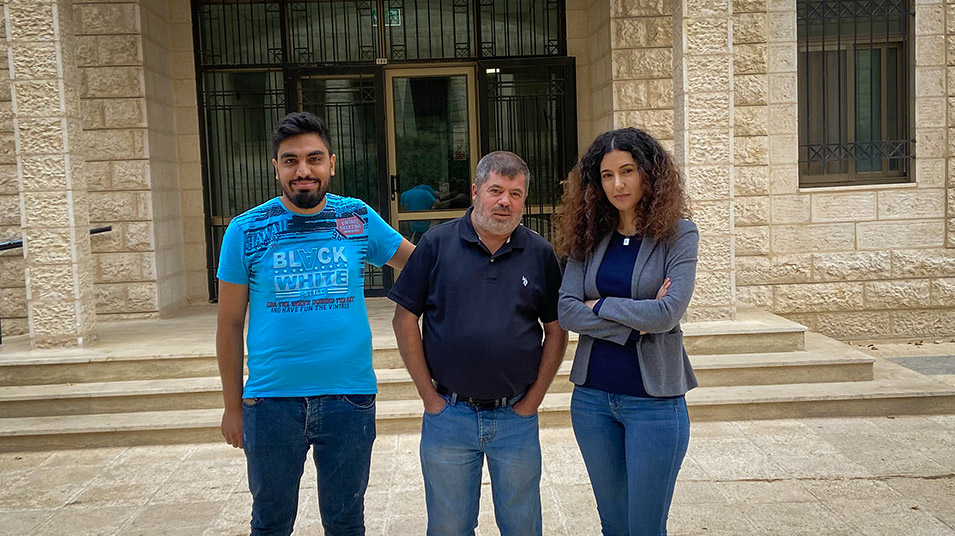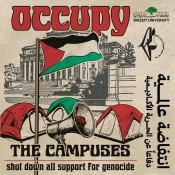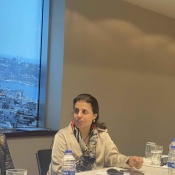Math alumna takes part of MIT project, explore challenging math cases
“The MIT-Palestine joint research project in Math was a spectacular and enriching experience. It gave us a nice glimpse of the world of Mathematical research which was professional and combined the geometric and algebraic ways of thinking,” said Mohammad Damaj, Birzeit University’s alumna, who took part of a MIT joint project during summer 2021.
Damaj, who recently graduated from the Department of Mathematics, was joined with students Husmeddin Badarin a master’s student at Palestine Polytechnic University, and Kim Eppling an undergraduate math student at MIT, and worked together on Frobenius algebras and 2D topological quantum field theories. The joint work was directed by Haynes Miller, professor of mathematics at MIT.
Locally, Drs. Reema Sbeih, and Mohammad Saleh, professors of Math at Birzeit University, were supervising the work of the Palestinian young researchers.
Haynes expressed his pride in the team’s commitment to work competently. “The learning curve was steep indeed, but the team used to meet weekly to investigate the classification of the theories from different perspectives, in addition to explaining their variations.”
“It was a very enriching experience,” Damaj commented. He noted that the joint collaboration between Palestinian students and professors, along with MIT students and researchers enriched the knowledge of Damaj.
Through annual grants, MIT provides the opportunity to exceptional students from all over the world to join the Undergraduate Research Opportunities Program (UROP), which offers a wide range of research activities in different academic specializations in collaboration of MIT faculty.
Damaj pointed out "it was a very instructive experience in which we learned a lot and gained detailed professional knowledge on 2D TQFT's.” The grant aims to help students experience personal and professional growth through continuous discussions and experiments on a certain topic.
“The journey was very challenging,” Damaj admitted. “However, we supported each other well, and were happy with the progress we made over the summer,” he said.
“Our explorations won’t stop here. There is a lot more that we can do. We hope to continue our collaboration this Fall,” Damaj assured. Currently, Damaj is part of a new joint research project with MIT, working on Homological Algebra.
The participation of the young scientists came after discussions during the Third International Gathering for Science in Palestine, organized by Scientists for Palestine at MIT in January 2020. The discussions suggested that making this kind of experience available to Palestinian students would add significantly to their professional training.








